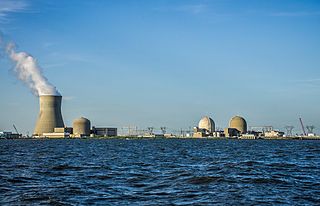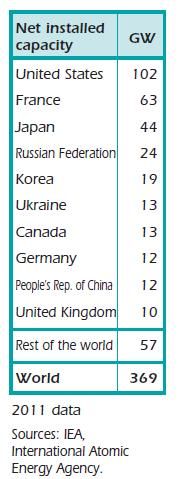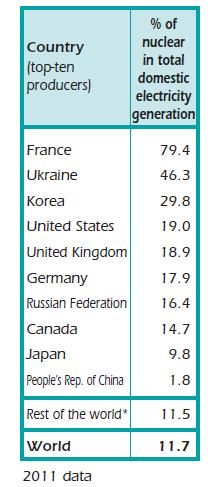From 2GreenEnergy Intern Olivier Goavec: The Impact of Germany’s Decision to Decommission its Nuclear Reactors, France’s Phasing Out Nukes Too

In France, immediately after the Second World War, Charles de Gaulle decided in October of 1945 to create the CEA (commissariat à l’énergie atomique/ Atomic Energy Commission) in order to develop and promote nuclear technologies. Between 1957 and 1961 the civil nuclear program really kicked off; the first experimental reactor emerged in 1956 and the first power plant in 1963. The USSR linked to the grid its first nuke in 1954 and the USA in 1957. In parallel, the first hydrogen bomb was tested in 1960. After the oil crisis of 1973 the French government decided to prioritize nuclear facilities and reached 75% of their electricity production from nuclear. Hence a famous French motto of this period: “We don’t have crude oil, but we have ideas.”
France decided to develop a nuclear bomb, but, though Germany was prohibited from acquiring it, they developed their civil nuclear field in the late 1950s. The first experimental reactor arrived in 1960 in Kahl and delivered its first electricity in 1962. Let’s not forget that in 1960 Germany was split in two parts. Germany produces 47% of its electricity from coal or lignite.
The situation in Germany:
Though Germans fight bitterly against nuclear power, we need to realize that, in Germany, the fight against nuclear isn’t new; opponents managed to cancel the construction of the Wyhl nuclear power plant in 1973. Then came the incidents of Three Mile Island in 1979, and Chernobyl in 1986, where Germany was contaminated by radiation. Fast-forward to Fukushima in 2011, which finished convincing the German government to close civil nuclear operations.
In the 2000’s, chancellor Gehrard Schröder, with the SPD / greens coalition, announced a nuclear phase-out, as promised during his election campaign. An agreement was reached with the four main producers to not build new nuclear power plants, and to close existing ones after 32 years of operation, meaning that the last one should be closed around 2021. At that time almost 30% of electricity in Germany was coming from their 19 plants nuclear (vs. a mere 6.5% from renewables).
That decision was criticized by Angela Merkel, and she decided to phase out the phase out, if you will, even though the majority (59%) of Germans were against a prolongation of the nuclear facilities. During her first mandate, which started in 2005, she was in the coalition CDU/CSU-SPD, and hence it was not possible to impose this change, but in 2009, when her second mandate began, the SPD was no longer in the coalition and in 2010 she had the opportunity to extend the life time of the reactors for an additional 10 years.
Unfortunately for Ms. Merkel and her decision to protract the life of nuclear energy in Germany, the situation reversed; on March 11th, 2011 the Fukushima accident happened, and four days later, Germany decided to suspend the life extension of the nuclear plants.
The situation in France:
France has a special place in the world concerning electricity, with almost 75% of its production from nuclear. It also ranks second (after the US) in terms of nuclear capacity, as shown below:
The French policy in favor of the nuclear was going strong until the election of Francois Hollande in 2012. In order to attract the green electorate, he promised to reduce the part of this production from 75% to 50% by the year 2025. However, this promise seems to have created a problem for the current government, which causes one to suspect their real conviction. On June 18th, 2014, Ségolène Royale, the Minister of Ecology, Sustainable Development and Energy confirmed in a legal proceeding France’s willingness to decrease nuclear to 50%, but the language surrounding this was fuzzy, and no real measures have yet been taken.
Addressing the Nuclear Phase-out and the Problems Resulting from It
In Germany:
Germany decided to close eight nuclear facilities out of 17 after Fukushima and now they have to deal with that decision.
The cooperation in energy with the EU allowed Germany to eliminate 7% of its electrical production without even talking with its neighbors, even though these countries will help Germany as required. Their reaction toward the Fukushima catastrophe shows a political answer to the energy problem.
In Europe, Germany is often seen as a model in terms of renewable energy, but we need to remain critical of their current policy. Before Fukushima near 25% of German electricity was produced via nuclear; today it is 18%. This drop in production has had to be compensated quite rapidly. In the U.S., shale gas caused the fall of the world of coal, which, perversely, promotes its use in a country like Germany, where a significant amount of power must be installed as soon as possible at a reasonable price, so not to increase consumers’ electricity bills. Indeed we have to point out that the German’s electricity bill is, in some places, up to 87% higher than that of the French, in part due to the German’s rapid installation of renewables.
The fact is that the electricity production from coal is bad in terms of greenhouse gas emissions, and also for the Germans’ health; coal kills 10,000 of them per year.
The third problem comes from the desire to install renewable capacities to compensate for the nuclear phase-out. At first sight this idea looks great, but the problem is that today we can’t store electricity in large quantity, which perturbs the European grid, where wind farms are pervasive. What do you do with electricity that you don’t need? The response is simple; you send it to your neighbors, who, in turn, have to modify their own production according to yours. This raises another problem: will the Germans agree to pay for electricity that is 87% more expensive than French, while seeing them, across the Rhine, consume electricity from their country at a reasonable price? Indeed the electrical market works on the same principle as the all others, i.e., supply and demand. If electricity is needed the price will be high, otherwise it will be low, it even can be negative (the producer pays to put it into the grid). It is a bit as if they are sponsoring French electrical power.
Another problem lies in the fact that German industries have had enough time at the beginning of the 2000s to adapt their strategy vis-à-vis the schedule closure of the nuclear facilities, but with the lifetime extension allowed in 2010, the premature closure of eight nuclear power plants in 2011 jeopardized the earnings of the four large electrical producers.
To conclude here on Germany, we can say that they made a choice which is not easy to achieve–one which will cost them a great deal. The French people would not agree to pay an electricity fee as high as Germans in the name of ecology, to compensate the phasing-out. It only has been possible because the major part of the population was against nuclear.
In France:
In France, nuclear lobbies are quite powerful and today the government does not have the power to close any nuclear facilities; this can only be done by the ASN (autoritéde sureté nucléaire / Nuclear Safety Authority) and the EDF, the historical producer. Closure would cause a security risk, and the EDF would see itself in economic trouble. That is the reason why the government is embarrassed with its promise.
The only power that the government has lies in the construction of new facilities, and they also can impose a capping on the nuclear capacities. For example there is a new power plant in construction in Flamanville (Normandy), the construction of which requires the government to say ‘we maintain the amount of nuclear power at 75% in France,’ meaning that that EDF will have the obligation to close an old nuke to open the new one.
I can’t predict the future about France but one thing is sure, we can criticize nuclear; we can say that it is dangerous, that we cannot manage the waste, etc. , but France is one of the countries which emits the least of CO2 per kWh, thanks to its nuclear. This is a viable alternative to renewable in order stop global warming.
France will keep a strong nuclear industry, and, at the same time China, India, Brazil and others countries want to develop their nuclear program. With 250 nuclear power plants in construction or planned all over the world, it would be stupid to kill a field where France is at the forefront — and they have important knowledge to export. We cannot talk of ‘phase-out’ in France; we can say that it is a reorganization of the energy field, not to be focused only on one technology. It is important to have a diversified energy mix.
Sources:
IEA 2013 report (English)
http://www.vie-publique.fr/politiques-publiques/politique-nucleaire/histoire-politique-nucleaire-civil/ (French)
http://www.linternaute.com/actualite/societe-france/histoire-nucleaire-france.shtml (French)
http://www.lemonde.fr/europe/article/2010/11/09/le-mouvement-anti-nucleaire-une-histoire-allemande_1437846_3214.html (French)
http://energie-developpement.blogspot.nl/2012/10/histoireenergienucleairecivile.html (French)
http://www.lemonde.fr/economie/article/2013/08/23/les-effets-pervers-de-la-sortie-du-nucleaire-en-allemagne_3465437_3234.html (French)
http://www.sortirdunucleaire.org/Francois-Hollande-et-le-nucleaire (French)
http://www.tresor.economie.gouv.fr/File/392245 (French)
http://www.liberation.fr/economie/2014/06/18/qui-peut-decider-de-fermer-une-centrale-nucleaire_1044521 (French)
http://www.asn.fr/L-ASN/Presentation-de-l-ASN/La-doctrine/Les-prises-de-position/Nouveaux-projets-de-construction-de-reacteurs-nucleaires-dans-le-monde (French)
https://www.rwe.com/web/cms/en/8644/rwe/about-rwe/profile/history/chronicle/1959-1967/ (English)
http://www.ag-energiebilanzen.de/EN/home/home.html (German)


